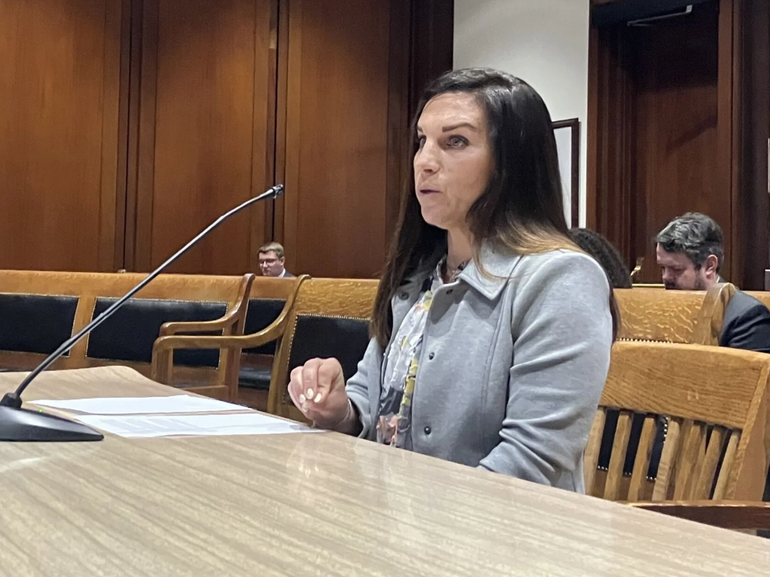Restaurant owners scrambling to turn profits amid rising food, labor and energy costs again turned to the Legislature Tuesday for some reprieve as they lobby to pass credit card surcharges onto their customers.
Meanwhile, economic development groups that support minority businesses aired their worries on Beacon Hill about how the Trump Administration’s immigration enforcement policies and tariffs are impeding their supply chain and customer base.
Restaurant owners pay credit card processing fees of 2% to 5% on every transaction, which also applies to the meals tax and tip, according to Jessica Moore, director of government affairs at the Massachusetts Restaurant Association. On a yearly basis, a small restaurateur will end up paying between $20,000 and $50,000 on credit card fees, Moore said at an informational hearing Tuesday.
“As more and more credit card companies offer points and incentives for restaurant purchases, the cost gets further shifted to the small business owners. Currently, Massachusetts vendors are permitted to offer a cash incentive, but may not add a credit card fee,” Moore told the Joint Committee on Community Development and Small Businesses.
“As the disclosure of a surcharge would protect consumers, we would like Massachusetts to join the 48 other states that allow businesses to add a surcharge for using a credit card,” Moore continued.
She voiced MRA’s support for bills from Rep. James Arena-DeRosa and Sen. John Cronin (H 319 / S 204) that would require sellers who impose a surcharge on credit cardholders to have conspicuous signage, as well as to include information about the surcharge on receipts.
The bills have a hearing on June 2 before the Joint Committee on Consumer Protection and Professional Licensure. Similar redrafted legislation cleared that panel last session but then stalled in the Senate Rules Committee.
Sen. John Keenan pointed out gas stations have long used a workaround in charging less to customers who pay with cash instead of a credit card. He also pointed to a bakery in his district that uses the same model.
“It’s very difficult for a restaurant owner who has multiple items and specials, stuff like that on the weekend, to dictate how they’re going to do that,” Moore responded. “So that’s why this practice would be much easier.”
Small business owners in cities with large immigrant populations are grappling with another problem — escalating federal immigration actions that one analyst said are changing customer behavior. Federal agents also made arrests in Nantucket on Tuesday.
“Communities like New Bedford, Chelsea, East Boston, Lowell, Worcester and other immigrant-heavy areas are reporting reduced foot traffic and consumer activities due to fear of current ICE raids,” Yari DeJesus, director of economic development at the Massachusetts Association of Community Development Corporations, said.
DeJesus, who was asked to elaborate on the consumer ripple effect, said laundromats and bodegas in places like New Bedford and East Boston are seeing “less people frequenting” them. Committee co-chair Sen. Adam Gomez added immigrants workers are also fearful to show up at work due to ICE raids.
“And it’s just to be on the record, that we’ve just seen a report with individuals that were roofers working and they raided a job site,” Gomez said, alluding to the arrest of workers in Lowell this month. “This matriculates to people not wanting to go to work, not going to their hospital visitations, or even some kids not even going to school.”
Alyssa Benalfew-Ramos, chief of policy at the Black Economic Council of Massachusetts, recapped preliminary survey results about the choices some members are making in response to new federal tariffs and supply chain disruptions. They includes laying off staff, increasing prices for customers, and pausing or considering closing their businesses, based on more than 20 responses and informal emails with members, Benalfew-Ramos said.
“We’ve had members share that the equipment they rely on has doubled or tripled in price,” said Benalfew-Ramos, who told lawmakers she could share the survey results in the “coming weeks.” The survey remains open, a spokesperson for BECMA told the News Service.
Benalfew-Ramos invoked one anonymous business that relies on equipment with parts manufactured in China, Mexico and Canada, which are now impacted by tariffs. A microphone system that used to cost $2,000 now costs more than $4,000, she said.
She mentioned another business that quoted a work project based on the price of lumber at the time — before tariffs took effect.
“Because of the tariffs, it doubled. Basically, the business took a loss, and they weren’t able to make any money off this eventual contract they completed,” Benalfew-Ramos said.

